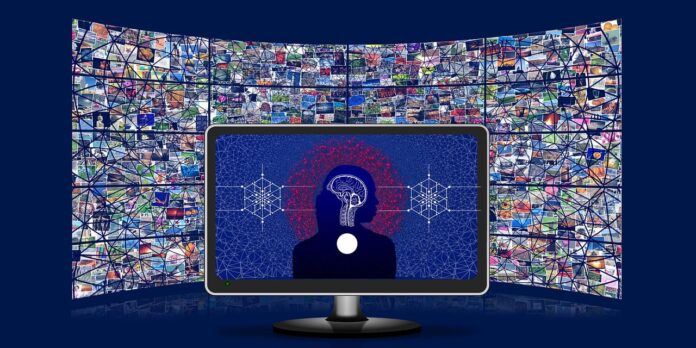In the realm of computation, a transformative revolution is underway—quantum algorithms. These groundbreaking algorithms leverage the inherent principles of quantum mechanics to solve complex problems with unprecedented speed and efficiency. By harnessing the unique properties of quantum systems, quantum algorithms promise to reshape industries, revolutionize cryptography, optimize logistics, and advance scientific research. In this article, we embark on a journey into the world of quantum algorithms, exploring their principles, remarkable applications, and the transformative potential they hold for the future of computing and problem-solving.
Quantum Computing: A Quantum Leap in Computational Power
At the core of quantum algorithms lies quantum computing—a paradigm shift in information processing. While classical computers manipulate bits, quantum computers leverage the power of qubits, which can exist in multiple states simultaneously thanks to the principle of superposition. This inherent parallelism enables quantum computers to perform calculations exponentially faster than their classical counterparts for certain problems.
Quantum algorithms tap into the power of quantum superposition and entanglement, allowing for the exploration of vast solution spaces and the efficient evaluation of complex mathematical functions. This computational advantage holds immense promise for tackling problems that are intractable for classical computers.
Quantum Supremacy: Demonstrating Quantum Computational Advantage
The concept of quantum supremacy encapsulates the idea that quantum computers can solve certain problems faster than classical computers. In 2019, Google’s quantum computer achieved a milestone by performing a computation that would take classical computers thousands of years in just a matter of minutes. This achievement marked a significant step toward demonstrating the superiority of quantum computing for specific tasks.
Quantum algorithms, such as Shor’s algorithm for factoring large numbers and Grover’s algorithm for database search, showcase the immense potential of quantum computing. Shor’s algorithm, for instance, has the potential to break commonly used encryption algorithms, spurring the need for new cryptographic techniques that can withstand quantum attacks.
Quantum Machine Learning: Unleashing Quantum Algorithms for Data Analysis
The marriage of quantum algorithms and machine learning presents exciting prospects. Quantum machine learning explores the utilization of quantum computational advantages for data analysis, pattern recognition, and optimization. By combining the power of quantum algorithms with the vast amounts of data available in today’s world, researchers aim to unlock new insights and improve the efficiency of machine learning tasks.
Quantum machine learning algorithms, such as the Quantum Support Vector Machine and Quantum Neural Networks, hold the potential to enhance pattern recognition, classification, and clustering tasks. These algorithms harness the power of quantum superposition and entanglement to process and analyze complex datasets, providing more accurate and efficient solutions.
Quantum Simulation: Unraveling Complex Phenomena
Quantum simulation algorithms allow researchers to tackle complex physical, chemical, and biological problems that are challenging to simulate on classical computers. By mapping quantum systems to qubits, scientists can simulate the behavior of molecules, materials, and quantum systems with unparalleled accuracy.
Quantum simulation algorithms offer insights into the behavior of quantum systems, enabling the study of chemical reactions, material properties, and the behavior of quantum particles. These simulations pave the way for advancements in fields such as drug discovery, materials science, and fundamental physics.
The Future of Quantum Algorithms
The future of quantum algorithms is filled with immense possibilities. As quantum computers continue to advance in scalability, qubit coherence, and error correction, the capabilities of quantum algorithms will grow exponentially. Researchers are actively working on developing new algorithms, refining existing ones, and exploring hybrid approaches that combine classical and quantum computing techniques.
Interdisciplinary collaborations between physicists, mathematicians, computer scientists, and domain experts from diverse fields will be crucial in driving the progress of quantum algorithms. By combining insights from these disciplines, researcherscan refine quantum algorithms, optimize quantum hardware architectures, and explore novel applications across a wide range of industries.
The potential applications of quantum algorithms are vast. In cryptography, quantum algorithms can revolutionize secure communication and encryption techniques. In optimization problems, such as supply chain management and financial portfolio optimization, quantum algorithms offer the potential for more efficient and optimal solutions. In machine learning, quantum algorithms can enhance pattern recognition, anomaly detection, and data analysis tasks.
Moreover, quantum algorithms have the potential to unlock new discoveries in scientific research. They can enable the simulation and exploration of quantum systems that were previously intractable, leading to breakthroughs in fundamental physics, chemistry, and biology.
Embracing the Quantum Revolution in Computing
The rise of quantum algorithms represents a paradigm shift—an integration of quantum mechanics and computation that propels us into a new era of problem-solving. It challenges us to reimagine the possibilities of what can be achieved, empowering us to solve complex problems faster, optimize systems more efficiently, and unlock insights that were once beyond our reach.
Quantum algorithms invite us to embrace the power of quantum mechanics, harness the capabilities of quantum computers, and embark on a journey of discovery and innovation. They offer a glimpse into the future—a future where our ability to solve complex problems is limited only by the boundaries of our imagination.
As we delve deeper into the quantum realm of algorithms, we unlock the potential for transformative advancements in science, technology, and society. Quantum algorithms stand as a testament to human ingenuity, scientific curiosity, and the relentless pursuit of knowledge. They invite us to embrace the power of quantum computing, push the limits of computational power, and embark on a journey that will reshape our understanding of the world and revolutionize problem-solving.
The future of quantum algorithms is bright, filled with limitless possibilities for solving complex problems, optimizing systems, and advancing our understanding of the universe. As we continue to unravel the mysteries of the quantum world through quantum algorithms, we move closer to a future where computational boundaries are pushed to new horizons, opening up a world of possibilities that will shape our world for generations to come.




